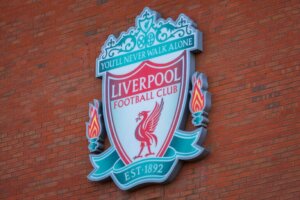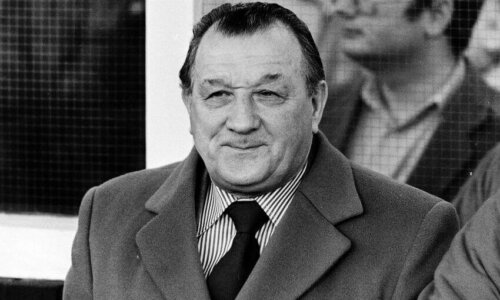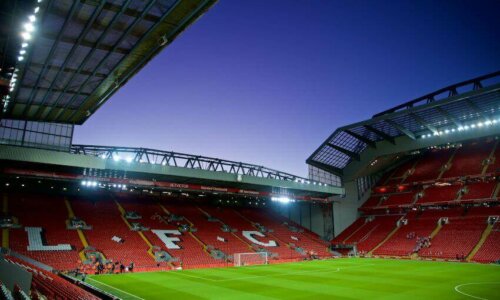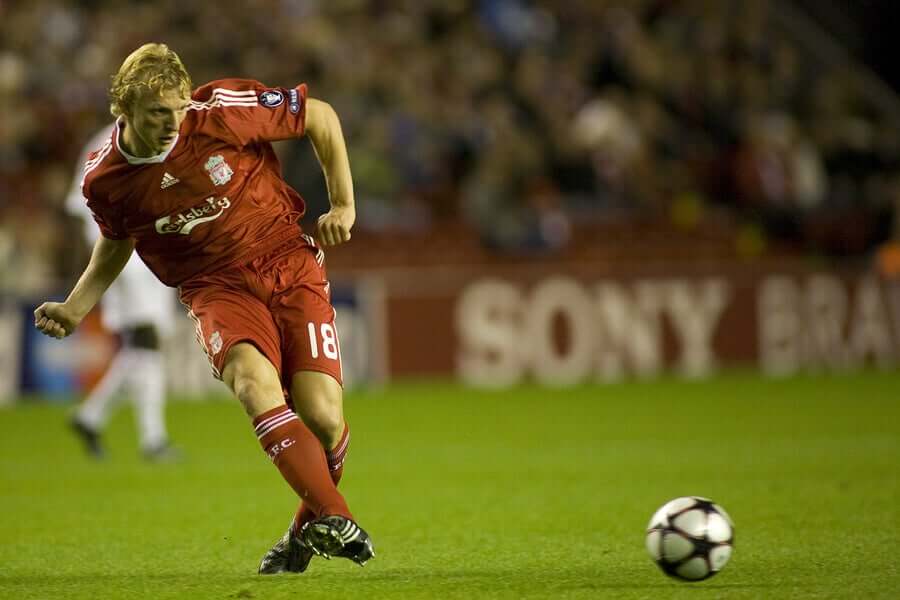England's Liverpool FC: a Soccer Giant

Without a doubt, Liverpool FC is one of the oldest soccer giants, aged over 120 years old. Its most glorious moment was in the ’70s and the ’80s when the club won 18 titles. Let’s dive into the fascinating history of the Reds.
Foundation and the beginning of England’s Liverpool FC
John Houlding officially founded the club in 1892, when he decided to leave Everton FC to form his own institution. Fortunately, this last club left the Anfield stadium vacant, and Houlding took the opportunity to make it the home of the emerging team.
Liverpool joined England’s second division only one year later, and that same season it was promoted to the first division. The team won its first title in 1901, and in 1914 it reached the FA Cup’s finals. Moreover, between the ’20s and the ’40s, it obtained some local titles.
However, in the 1950s the club was relegated to the second division and it stayed in that category until 1962. Only two years later, Liverpool FC became the Premier League champion after 17 years of no titles.
Liverpool FC: golden years of the ’70s and the ’80s
In the 1972-1973 season, Bob Paisley was the team’s coach; he was one of the famous idols of the club. That’s when Liverpool’s golden years began. The team won the Premier League titles in the following seasons: ’72-’73, ’75-’76, ’76-’77, ’78-’79, ’79-’80, ’81-’82, ’82-’83, ’85-’86, ’87-’88 and ’89-90.
Then, in 1983 Joe Fagan, Paisley’s assistant, replaced him as the club’s coach.

Liverpool is the most successful English club, with 63 official titles. And their success goes beyond local recognitions; they’ve also conquered four Champion League titles (’76-’77, ’77-’78, ’80-’81 and ’83-’84), two European Cups (’72-’73 and ’75-’76), and a European Super Cup in 1977.
Anfield: Liverpool’s home
If you’re talking about Liverpool, you must talk about the Red’s home. Anfield stadium was built in 1884 in front of Stanley Park. In the beginning, Everton was using Anfield, but it became Liverpool’s property in 1892. Meaning that for almost 130 years, the team has been located in the same complex.
A curious fact about Anfield is that the SS Great Eastern ship carries the club’s flag on one of its masts. Also, in 1906, one of the banked stands was renamed, ‘Spion Kop’ in honor of the Second Boer War battle, in which many Liverpool soldiers died. Fans who sit on that stand call themselves Kopites.

Although Anfield had a capacity of over 60,000 spectators, it currently allows for 45,000 after the total remodeling from the ’90s. After the renovation, the stadium reinaugurated for the club’s 100th birthday, in 1992.
Some interesting Liverpool FC statistics
Liverpool has been in 101 seasons of England’s first division and eleven in the second division, and in 1979, the club won 30 matches.
Its greatest victory was an 11-0 against Stromgodset in the 1974-1975 European Cup’s round of 16. But one of its most devastating losses was an 8-0 against Huddersfield in 1934.
The Reds have won the Champions League six times (the last one in 2019) and three times the UEFA Cup (the last one in 2001).
Furthermore, the team’s record goalscorer is Ian Rush, a Welsh player who scored 346 goals between 1980 and 1995, both in national and international matches. Roger Hunt takes second place with 286 scored goals.

On the other hand, English player Ian Callaghan holds the record for the most appearances (857 between 1960 and 1978), while the coach with most titles is Bob Paisley, who led the team to win 20 trophies. Finally, the coach who managed the team the longest was Tom Watson, who spent 19 years and 742 matches as Liverpool’s coach.
And to end, we leave you an excerpt of the Liverpool’s anthem, recognized worldwide by all soccer fans:
“Walk on, walk on with hope in your heart and you’ll never walk alone.”
Without a doubt, Liverpool FC is one of the oldest soccer giants, aged over 120 years old. Its most glorious moment was in the ’70s and the ’80s when the club won 18 titles. Let’s dive into the fascinating history of the Reds.
Foundation and the beginning of England’s Liverpool FC
John Houlding officially founded the club in 1892, when he decided to leave Everton FC to form his own institution. Fortunately, this last club left the Anfield stadium vacant, and Houlding took the opportunity to make it the home of the emerging team.
Liverpool joined England’s second division only one year later, and that same season it was promoted to the first division. The team won its first title in 1901, and in 1914 it reached the FA Cup’s finals. Moreover, between the ’20s and the ’40s, it obtained some local titles.
However, in the 1950s the club was relegated to the second division and it stayed in that category until 1962. Only two years later, Liverpool FC became the Premier League champion after 17 years of no titles.
Liverpool FC: golden years of the ’70s and the ’80s
In the 1972-1973 season, Bob Paisley was the team’s coach; he was one of the famous idols of the club. That’s when Liverpool’s golden years began. The team won the Premier League titles in the following seasons: ’72-’73, ’75-’76, ’76-’77, ’78-’79, ’79-’80, ’81-’82, ’82-’83, ’85-’86, ’87-’88 and ’89-90.
Then, in 1983 Joe Fagan, Paisley’s assistant, replaced him as the club’s coach.

Liverpool is the most successful English club, with 63 official titles. And their success goes beyond local recognitions; they’ve also conquered four Champion League titles (’76-’77, ’77-’78, ’80-’81 and ’83-’84), two European Cups (’72-’73 and ’75-’76), and a European Super Cup in 1977.
Anfield: Liverpool’s home
If you’re talking about Liverpool, you must talk about the Red’s home. Anfield stadium was built in 1884 in front of Stanley Park. In the beginning, Everton was using Anfield, but it became Liverpool’s property in 1892. Meaning that for almost 130 years, the team has been located in the same complex.
A curious fact about Anfield is that the SS Great Eastern ship carries the club’s flag on one of its masts. Also, in 1906, one of the banked stands was renamed, ‘Spion Kop’ in honor of the Second Boer War battle, in which many Liverpool soldiers died. Fans who sit on that stand call themselves Kopites.

Although Anfield had a capacity of over 60,000 spectators, it currently allows for 45,000 after the total remodeling from the ’90s. After the renovation, the stadium reinaugurated for the club’s 100th birthday, in 1992.
Some interesting Liverpool FC statistics
Liverpool has been in 101 seasons of England’s first division and eleven in the second division, and in 1979, the club won 30 matches.
Its greatest victory was an 11-0 against Stromgodset in the 1974-1975 European Cup’s round of 16. But one of its most devastating losses was an 8-0 against Huddersfield in 1934.
The Reds have won the Champions League six times (the last one in 2019) and three times the UEFA Cup (the last one in 2001).
Furthermore, the team’s record goalscorer is Ian Rush, a Welsh player who scored 346 goals between 1980 and 1995, both in national and international matches. Roger Hunt takes second place with 286 scored goals.

On the other hand, English player Ian Callaghan holds the record for the most appearances (857 between 1960 and 1978), while the coach with most titles is Bob Paisley, who led the team to win 20 trophies. Finally, the coach who managed the team the longest was Tom Watson, who spent 19 years and 742 matches as Liverpool’s coach.
And to end, we leave you an excerpt of the Liverpool’s anthem, recognized worldwide by all soccer fans:
“Walk on, walk on with hope in your heart and you’ll never walk alone.”
All cited sources were thoroughly reviewed by our team to ensure their quality, reliability, currency, and validity. The bibliography of this article was considered reliable and of academic or scientific accuracy.
- Our Story: Celebrating 127 Years of the Liverpool Way. Sitio Oficial del Liverpool FC. https://www.liverpoolfc.com/history
- Mendoza, A. Un Liverpool intratable hace historia en la Premier League. CR Hoy. Enero de 2020 https://www.crhoy.com/deportes/un-liverpool-intratable-hace-historia-en-la-premier-league/
- Prats, L. Algunos secretos de Liverpool, el mejor equipo del mundo en 2019. Ovación Digital. Diciembre de 2019. https://www.ovaciondigital.com.uy/futbol/secretos-liverpool-mejor-equipo-mundo.html
This text is provided for informational purposes only and does not replace consultation with a professional. If in doubt, consult your specialist.








